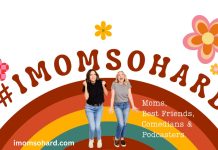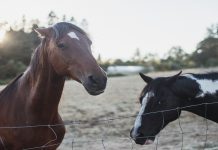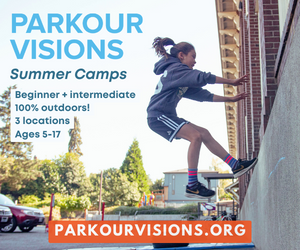Has anyone else found themselves rethinking holiday celebrations since having a kid?
Do we want to celebrate “X”? What does this holiday mean to us? How will we explain this to our kids? And am I okay with why this holiday exists or the roots and values tied to it?
As you can imagine, Thanksgiving has been a major one for us to consider.
- How do you explain why people celebrate this day? Sure, we can talk about gratitude but why, on this day, are we doing it?
- Can you be against the roots of colonialism and genocide of the Native American people and still have Thanksgiving dinner?
- Should we at least be honest about how we got here?
- How do you talk to a 2.5 year old about the atrocities associated with this holiday?
- Can you talk about mass violence and oppression with kids that young?
- Am I uncomfortable because I am privileged?
- Should we even be celebrating it if it takes this much energy to think about?
It came down to our values about being open to exploring biases, sitting in and working through challenging topics, asking tough questions about ourselves and others, and thinking more critically about our world.
Avoiding the topic of Thanksgiving does nothing to help our child understand the terrible history around the holidays. It makes us part of the problem.
It does nothing to give her greater insight into the land she lives on that was stolen from Native American tribes. Telling ourselves, “We just see it as a time to get together with family, so what’s the big deal?” is an execution of privilege and a way of burying our heads in the sand.
This is a holiday she will grow up making paper turkeys and crafts at school to celebrate. She will get days off of school or paid time off from her work. She exists in a world that is quick to point out the mistakes and imperfections of others but took DECADES to stop calling the Washington Football team the Redskins.
So, rather than continue to be a part of the problem, we decided to find a different way to celebrate.
We researched and bought two books for her that teach her about and celebrate Indigenous People.
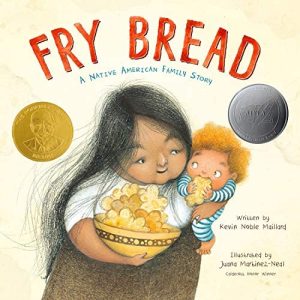
“Fry Bread“; Written by Kevin Noble Maillard, Illustrated by Juana Martinez-Neal
This book talks about the role of fry bread in our history and now. It talks about its power to bring together and unify. I love the end, wherein there is extra information for families to read about the concepts and historical points referenced in the book.
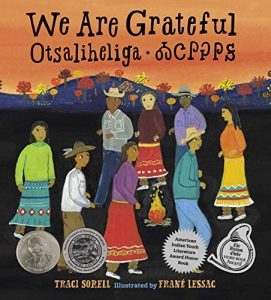 “We Are Grateful“; Written by Traci Sorell, Illustrated by Frame Lessac
“We Are Grateful“; Written by Traci Sorell, Illustrated by Frame Lessac
This book is so beautifully done. Otsaliheliga (oh-jah-LEE-hay-lee-gah), a word members of the Cherokee Nation use to express gratitude; the book teaches us about the Cherokee people’s celebrations, connections, and experiences and how they communicate and show gratitude.
Instead of a Thanksgiving dinner, we will be making some traditional dishes of different Native American tribes that weekend and learning about the history of foods like Fry Bread.
We will celebrate a meal in honor of Native American Heritage Month (also called American Indian and Alaska Native Heritage Month) rather than Thanksgiving. My partner and I have committed to doing more work on shifting how we view and talk about this and other holidays and celebrations.
Is it okay to still celebrate Thanksgiving?
There is no easy answer regarding some of these more subtle elements. All of us have to be willing to sit in discomfort to think about things we have just done or continue to perpetuate in terms of traditions and beliefs and ask ourselves why, especially for those of us that have historically benefited from systems of oppression.
How can you change the way you think about the holidays we celebrate? Can you allow the possibility you are a good person who has been misguided by oppressive cultural norms and biases? Suppose you read information like this and find yourself shutting down and considering everything terrible about you OR playing defense and cataloging all of the ways this isn’t a YOU problem or that you are a good person. In that case, you are centering the story on yourself. This doesn’t serve anyone. This is not about us as individuals, but the collective values and community we want to create for ourselves, our children and the rest of the world around us.
We want to hear from you
Parents, loved ones and caregivers — what else have you done to shift how we talk about Thanksgiving? How have you made other holidays more inclusive? Are there ways you have been able to bring in the traditions, holidays, and history of other people and cultures to help your children gain a more incredible view and more profound understanding of the world?
Now, what can you do to be a part of the change?
You don’t have to have or be around kids to do the work. Find and commit to something you can start doing now to be a force for change rather than a pawn in the game of complacency and privilege.


